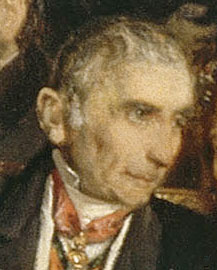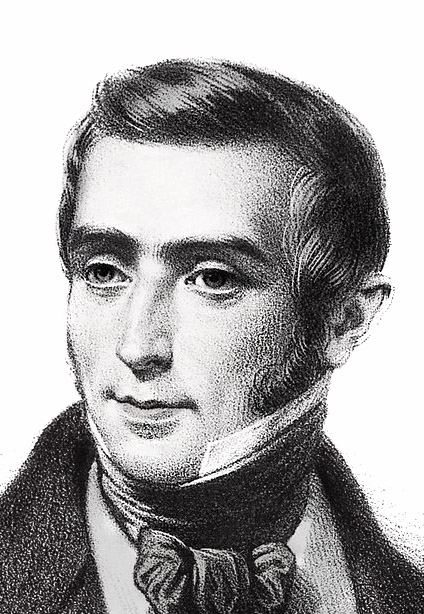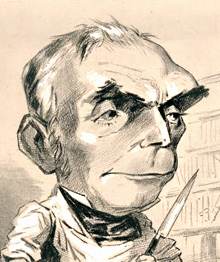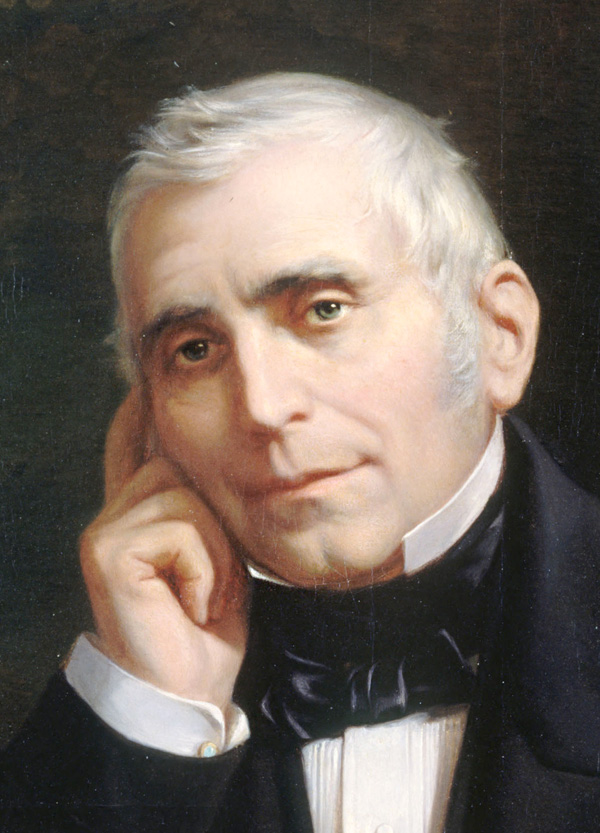Eugène Scribe (1791 - 1861), playwright author, librettist
1st image: Soirée; 2nd: engraving (c.1840); 3rd: caricature by Nadar (c.1840); 4th: by Vernet-Lecomte (family of Horace31)(1863) based on photo Nadar for Halévy19 album (c.1860); Video: Acteon by Auber/Scribe.
Augustin Eugène Scribe, renowned as a master of vaudeville, comedy, and dramatic writing, occupies the theater corner of Une Soirée, positioned near the actors Régnier77 and Samson80 and engaged in conversation with fellow Commander of the Légion d’Honneur Meyerbeer76, with whom he collaborated on grand operas such as Robert le Diable (1831). Composers Auber56 and Halévy19 derived substantial benefit from Scribe’s libretti.
Scribe was a fertile, methodical, and driven author. Between 1815 and 1845 he produced 355 works; 1823 was his most productive year, with 24 libretti published in a single year (approximately one every fortnight). It is important to remember that the act of singing text extends performance time relative to reading, and that a libretto, often only a few dozen pages, frequently occupies a subsidiary position to the musical score.
Scribe organized his output with rigorous discipline and relied on a network of credited collaborators who specialized in specific elements such as comic domestic scenes, spoken dialogue, versified couplets, and theatrical effects, as satirically illustrated in the Pantheon Charivarique (1839).
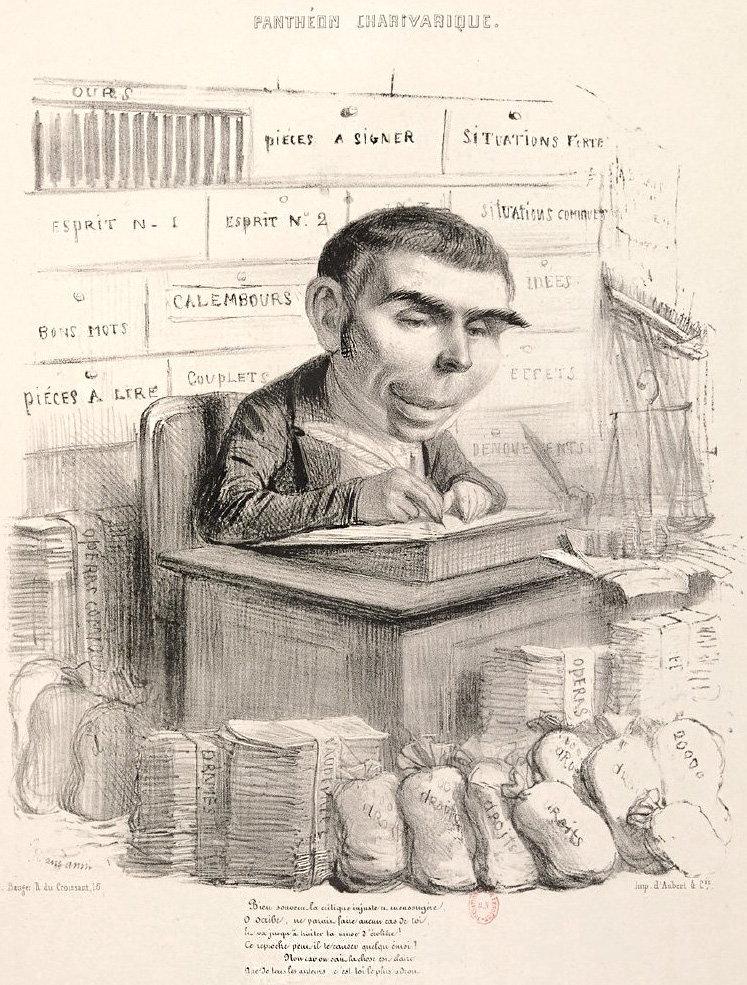
His plays and operatic contributions enjoyed considerable popular success. In December 1845 the Journal des Théâtres observed the rare fact that only two of Scribe’s plays were in simultaneous production that month.
With an annual income reportedly in excess of 100,000 francs (roughly equivalent to two million euro in 2025), Scribe smartly invested in the wine trade. This investment brought him into contact with Clarisse Marduel, the widowed daughter of a wine merchant to whom he had advanced funds; they subsequently married in 1842, and her dowry matched his financial stake in her father’s business.
From that moment onward, the output of happily married Scribe stabilized at roughly six works per year; see his extensive list of stage works for complete enumeration. Among his most successful pieces were La Muette de Portici (Auber, 1828), an opera linked to the 1830 Belgian insurrection against the United Kingdom of the Netherlands; La Juive (Halévy, 1835); and Adrienne Lecouvreur a five-act melodrama coauthored with Ernest Legouvé and written with the tragedienne Rachel Félix81 in mind (1849).
Rachel, up to that time associated with classical tragedy, initially struggled during rehearsals to inhabit the modern role of Adrienne, an actress who loves a nobleman without knowing his identity. Despite interventions by her sister Rebecca, who negotiated details with Scribe, Rachel declined the role. Offended, Scribe gave the part to Rose Chéri, whose successful rehearsals provoked Rachel’s professional jealousy and prompted her to accept the role for the premiere on April 14, 1849, at the Théâtre Français. The rupture between Scribe and Rachel was resolved, and the two developed a cordial friendship. Adrienne Lecouvreur became Rachel’s final performance on 17 December 1855 in Charleston, USA.
Scribe’s schedule suggests that he had limited opportunity to attend any vendredi-soirées; the first time the press noted his presence was on December 10, 1852. It is unlikely that he remained for the après-vendredi at Viel-Castel’s43 atelier for cigars, tea, and caricature by Eugène Giraud11. Although Scribe may have attende only once or few times, many regulars of de Nieuwerkerke’s16 events are documented as having attended many of his plays. Minister Achille Fould17, for example, is recorded as preferring to support one of Scribe’s lighter entertainments over a more complex drama by Alexandre Dumas.
Critical reception of Scribe’s work was not uniformly positive. Arsène Houssaye, director of the Théâtre-Français, wrote in his memoirs that Scribe possessed “everything necessary to write, save the art of writing.”
By the early 1850s signs of decline appeared: a Parisian periodical of 1853 suggested that Scribe’s fortunes were waning and accused him of recycling his own material. His 1855 comedy La Czarine, in which Rachel performed, was judged stale and unsuccessful and closed after a few performances, marking Rachel’s last new stage appearance in France.
Including posthumous productions staged by Auber and Meyerbeer several years after his death, Scribe’s theatrical oeuvre totals 425 dramatic works.
Although his works are rarely staged today, they inspired numerous film and television adaptations well into the twentieth and twenty-first centuries, for example La Nonne sanglante (Gounod/Scribe), adapted as recently as 2019.
